Ad Blocker Detected
Our website is made possible by displaying online advertisements to our visitors. Please consider supporting us by disabling your ad blocker.
If you’re looking for ways to boost your testosterone levels, you’ve come to the right place! In this article, we’ll share some helpful tips that can naturally increase your testosterone levels and keep them in check. So, whether you’re looking to optimize your athletic performance, enhance your libido, or simply maintain a healthy hormone balance, read on to discover some easy and practical suggestions that may benefit you. Ready to take charge of your testosterone? Let’s dive in and explore these tips for increasing testosterone levels!
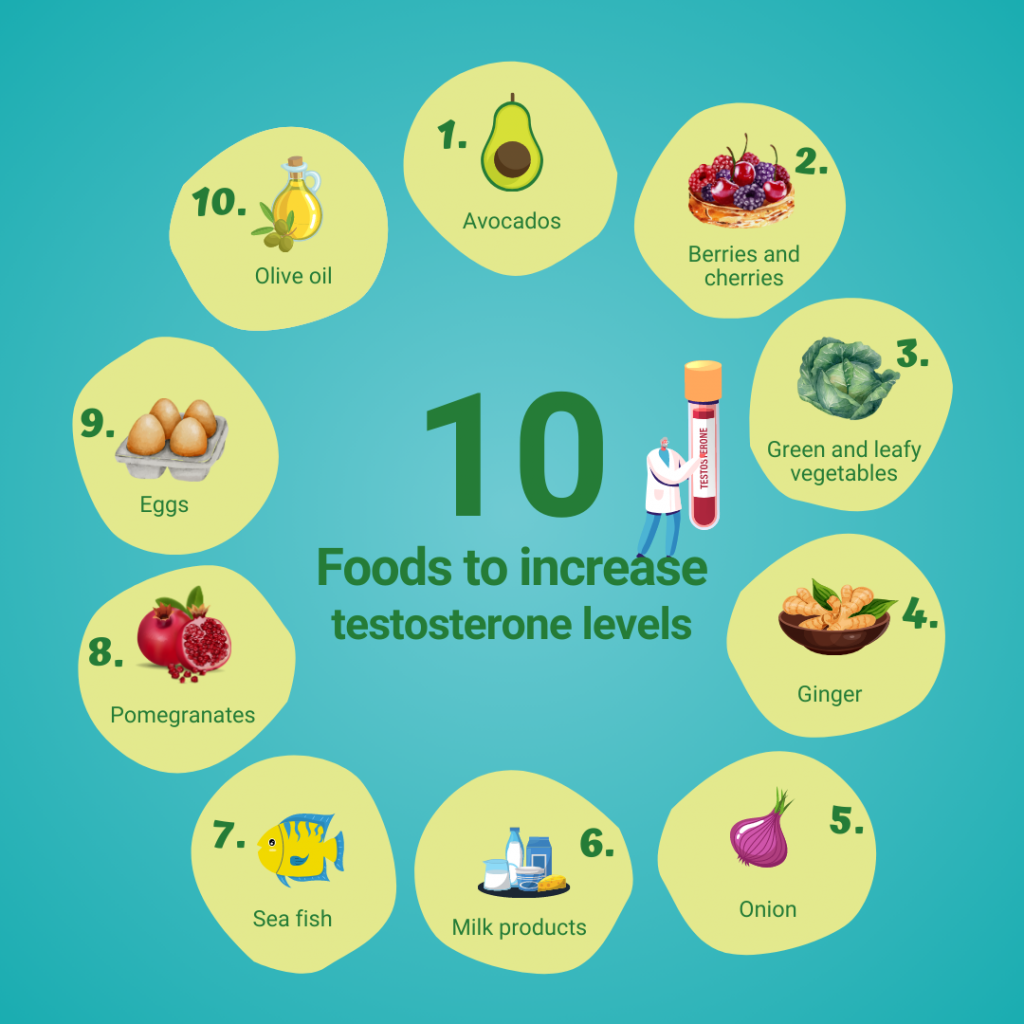
This image is property of www.metropolisindia.com.
Tips for Increasing Testosterone Levels
If you’re looking to naturally increase your testosterone levels, there are several lifestyle changes you can make to achieve optimal hormonal balance. From dietary adjustments to exercise routines and stress reduction techniques, here are some friendly tips to help you on your journey.
Dietary Changes
The food you consume plays a crucial role in hormone production, including testosterone. By making a few modifications to your diet, you can support healthy testosterone levels.
Consume Healthy Fats
Incorporating healthy fats into your diet can help boost testosterone production. Foods rich in monounsaturated and polyunsaturated fats, such as avocados, nuts, seeds, and fatty fish like salmon, can provide the necessary building blocks for hormone synthesis.
Include Protein-rich Foods
A diet high in protein can also have a positive impact on testosterone levels. Opt for lean sources like chicken, turkey, fish, tofu, and legumes. Protein helps support muscle growth and repair, which is closely linked to testosterone production.
Opt for Whole Grains
When it comes to carbohydrates, choose whole grains instead of refined options. Whole grains like quinoa, brown rice, and oats can help regulate insulin levels, preventing spikes that may negatively impact testosterone production.
Increase Fiber Intake
Fiber is a crucial component of a healthy diet and can potentially influence testosterone levels. Incorporate fiber-rich foods such as fruits, vegetables, whole grains, and legumes into your meals. By promoting healthy digestion and reducing inflammation, fiber can indirectly support optimal testosterone levels.
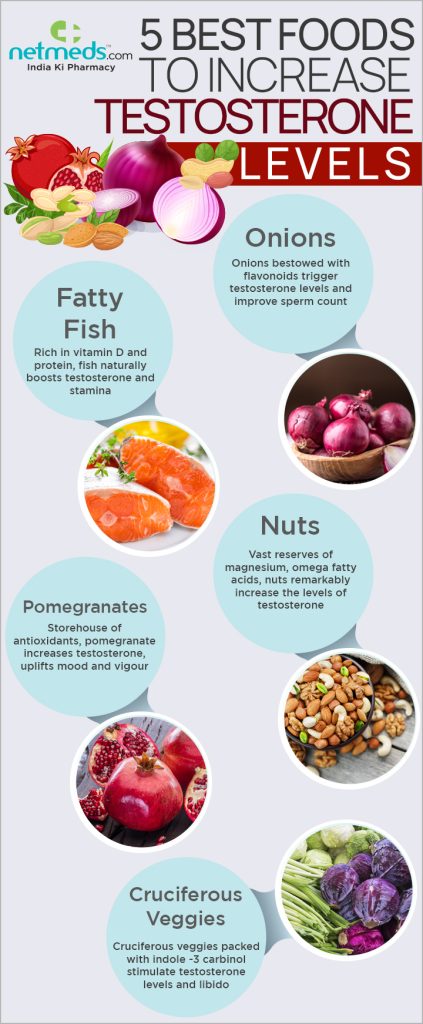
This image is property of www.netmeds.com.
Exercise and Weightlifting
Regular exercise, specifically weightlifting and high-intensity interval training (HIIT), can have a significant impact on testosterone levels. Consider adding the following exercises to your routine:
Engage in High-Intensity Interval Training (HIIT)
HIIT involves short bursts of intense exercise followed by brief recovery periods. This type of workout has been shown to increase testosterone levels significantly. Try incorporating activities like sprints, burpees, or jumping jacks into your routine for a testosterone-boosting effect.
Incorporate Strength Training
Strength training exercises, such as weightlifting, are particularly effective for increasing testosterone levels. Focus on compound movements that target multiple muscle groups simultaneously, such as squats, deadlifts, bench presses, and rows. Aim for challenging weights and gradually increase them over time to stimulate testosterone production.
Compound Exercises for Maximum Benefits
Compound exercises engage larger muscle groups and stimulate a greater release of testosterone. Incorporate exercises like lunges, pull-ups, and overhead presses into your workouts to maximize the hormonal response. Remember to maintain proper form to prevent injuries and achieve the best results.
Reduce Stress
Managing stress levels is crucial for overall health and well-being, including optimal testosterone production. Here are some practical strategies to help you reduce stress in your daily life:
Practice Relaxation Techniques
Engage in activities like deep breathing exercises, meditation, or yoga to promote relaxation and reduce stress. These techniques can help lower cortisol, a stress hormone that inhibits testosterone production.
Exercise regularly
Regular physical activity has been shown to reduce stress and improve mood. Make it a priority to engage in activities you enjoy, such as walking, hiking, swimming, or dancing. Find an exercise routine that fits your lifestyle and make it a habit.
Prioritize Self-care
Taking care of your mental and emotional well-being is essential for hormonal balance. Establish healthy boundaries, engage in hobbies you love, and set aside time for self-reflection and relaxation. Remember that self-care looks different for everyone, so focus on activities that rejuvenate you.
Get Support
If stress becomes overwhelming, don’t hesitate to reach out for support. Talk to trusted friends or family members, seek guidance from a therapist, or join support groups. Sometimes, a listening ear or professional advice can make a world of difference when it comes to managing stress levels.
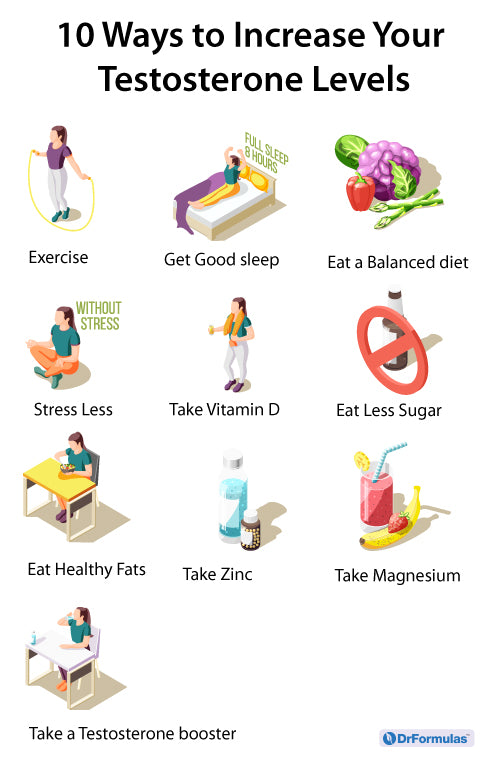
This image is property of cdn.shopify.com.
Adequate Sleep
Getting enough quality sleep is crucial for achieving and maintaining optimal testosterone levels. Here are some tips to help you improve your sleep habits:
Maintain a Consistent Sleep Schedule
Establish a consistent sleep routine by going to bed and waking up at the same time every day, even on weekends. This helps regulate your body’s internal clock and promotes better sleep quality.
Create a Relaxing Bedtime Routine
Develop a relaxing bedtime routine to signal your body that it’s time to wind down. Consider activities like reading a book, taking a warm bath, or practicing gentle stretching. Avoid stimulating activities or electronic devices that emit blue light, as they can interfere with sleep.
Make Your Bedroom Sleep-conducive
Create a sleep-friendly environment in your bedroom. Ensure that the room is cool, dark, and quiet. Invest in comfortable bedding, supportive pillows, and consider using blackout curtains or a sleep mask to block out any light.
Vitamin D and Sun Exposure
Vitamin D is not only crucial for overall health but also plays a role in testosterone production. Here’s how you can optimize your vitamin D levels:
Spend Time Outdoors
Sun exposure is the primary source of vitamin D. Aim to spend time outdoors, especially during the midday when the sun’s rays are strongest. Be mindful of sun safety, however, and protect your skin with sunscreen and appropriate clothing.
Consider Vitamin D Supplements
If you have limited sun exposure or live in an area with minimal sunlight, consider taking a vitamin D supplement. Consult with your healthcare provider to determine the appropriate dosage for your individual needs.
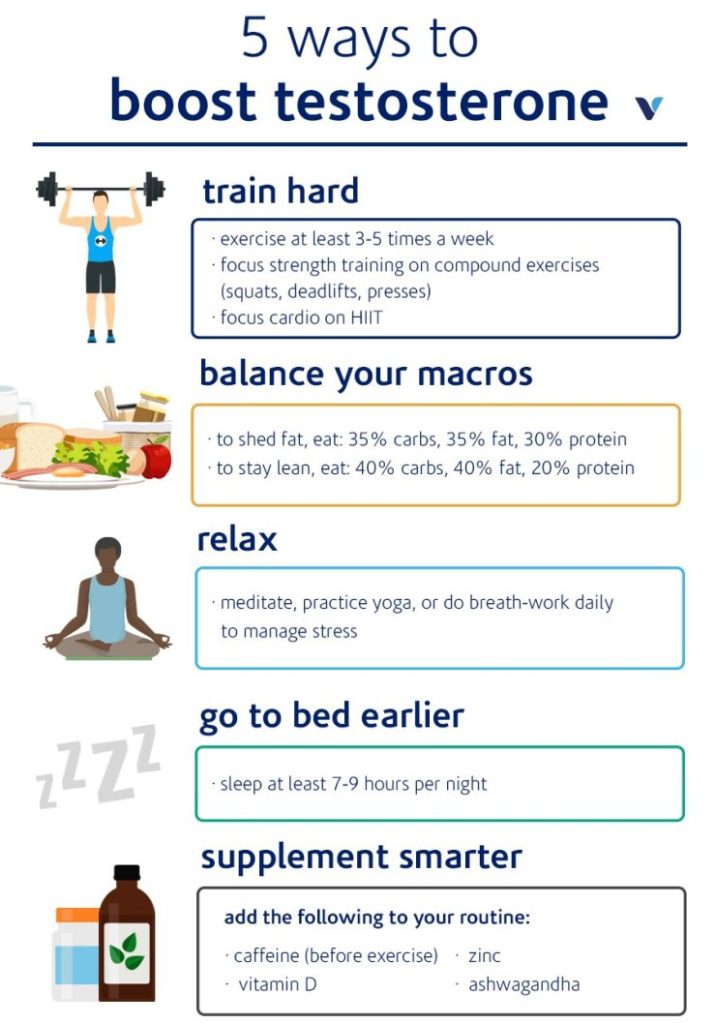
This image is property of i0.wp.com.
Minimize Alcohol Consumption
Excessive alcohol consumption can decrease testosterone levels and have a negative impact on overall health. Consider these tips to moderate your alcohol intake and support hormonal balance:
Limit Alcohol Intake
To optimize testosterone levels, limit your alcohol consumption. Stick to moderate drinking guidelines, which recommend no more than one drink per day for females and up to two drinks per day for males. Be aware of the alcohol content in different beverages and choose low-alcohol options when possible.
Avoid Binge Drinking
Binge drinking, defined as consuming a large quantity of alcohol within a short period, can be particularly detrimental to testosterone levels. It’s important to avoid excessive alcohol intake, as it can disrupt hormonal balance and have various adverse health effects.
Manage Weight and Body Fat
Maintaining a healthy weight and appropriate body fat percentage is crucial for optimal testosterone production. Consider the following strategies to manage weight and body fat effectively:
Maintain a Healthy Weight
Maintain a healthy weight by adopting a balanced diet and engaging in regular physical activity. Avoid crash diets or extreme weight loss methods, as they can negatively impact hormone levels.
Reduce Body Fat
Excess body fat, particularly around the abdomen, can lead to decreased testosterone production. Incorporate cardiovascular exercise and strength training into your routine to help reduce body fat and promote a healthy body composition.
Avoid Crash Diets
Extreme caloric restriction or crash diets can significantly impact hormone production, including testosterone. Instead of focusing on quick fixes, aim for gradual, sustainable weight loss through a well-rounded diet and consistent exercise regimen.
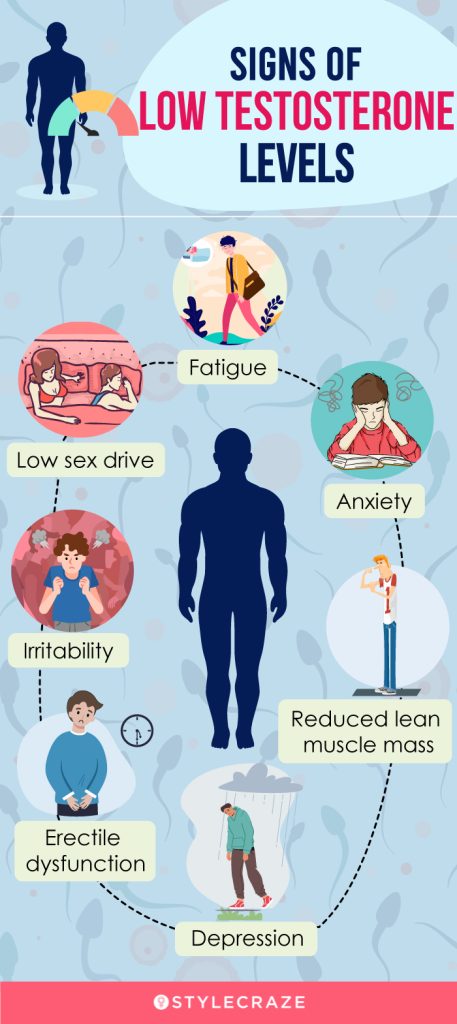
This image is property of cdn2.stylecraze.com.
Avoid Chronic Caloric Restriction
While maintaining a healthy weight is important, chronic caloric restriction can lead to suboptimal testosterone levels. Here are some tips to ensure you’re consuming enough calories:
Eat Sufficient Calories
Ensure you’re consuming enough calories to support your body’s needs. Calculate your daily caloric requirements based on your activity level, age, height, and weight. Aim to meet these requirements by eating a balanced diet that includes a variety of nutrient-dense foods.
Avoid Prolonged Fasting
Extended periods of fasting or severe calorie restriction can disrupt hormone production, including testosterone. While intermittent fasting can be beneficial for some individuals, prolonged fasts should be avoided for the sake of hormonal balance. Consult with a healthcare professional before adopting any fasting regimen.
Can Natural Methods Really Help to Increase Testosterone Levels?
Yes, natural methods can indeed regulate testosterone levels naturally. Regular exercise, healthy diet, adequate sleep, and stress management can all play a role in maintaining testosterone levels. Additionally, herbal supplements like ashwagandha and fenugreek have also been found to help regulate testosterone levels naturally.
Increase Zinc Intake
Zinc is a vital mineral that plays a crucial role in testosterone production. By ensuring you’re getting enough zinc, you can support healthy hormone levels. Consider the following tips:
Consume Zinc-rich Foods
Incorporate zinc-rich foods into your diet, such as oysters, beef, poultry, beans, nuts, and whole grains. These foods are not only delicious but can also provide the necessary zinc to support testosterone synthesis.
Consider Zinc Supplements
If you struggle to meet your zinc requirements through diet alone, consider adding a zinc supplement to ensure adequate intake. Before starting any new supplement, consult with a healthcare professional to determine the appropriate dosage and to ensure it is safe for you.
In conclusion, increasing testosterone levels naturally involves making certain dietary changes, incorporating specific exercises into your routine, managing stress levels, prioritizing adequate sleep, optimizing vitamin D levels, moderating alcohol consumption, maintaining a healthy weight and body fat percentage, avoiding chronic caloric restriction, and increasing zinc intake. By following these friendly tips and making adjustments to your lifestyle, you can support optimal testosterone levels and ultimately enhance your overall well-being. Remember to always consult with a healthcare professional before making significant changes to your diet or exercise routine.



